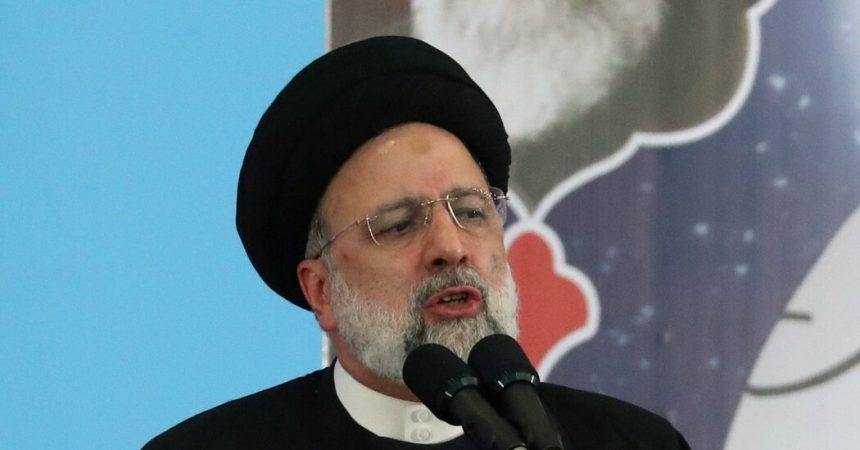The crash of a helicopter carrying President Ebrahim Raisi of Iran could hardly have come at a more volatile time for the Islamic Republic.
Sunday’s episode left the fate of Mr. Raisi — who many analysts believed was being groomed to become Iran’s next supreme leader — uncertain against a backdrop of economic misery, widespread public discontent and geopolitical tensions that had pushed Israel and Iran to exchange rare direct attacks.
In the event of the president’s death, the vice president takes over and must organize an election within 50 days, said Ali Vaez, the Iran director of the International Crisis Group, an independent conflict prevention agency.
That, he said, would be “a major challenge for a country that is in the midst of a severe crisis of legitimacy at home and daggers drawn with Israel and the United States in the region.”
In the last two years the country has witnessed a domestic uprising, the Iranian currency plunging to a record low, water shortages intensified by climate change and the deadliest terrorist attack since the 1979 founding of the Islamic Republic.
Parliamentary elections in March showed just how serious that crisis of legitimacy had become for Iran’s ruling class after millions of Iranians boycotted the vote and a far-right faction made notable gains.
“That just shows how unpopular the Islamic Republic currently is at home,” Mr. Vaez said, describing “a deepening rift between the state and the society.”
The economy remains in shambles because of U.S. sanctions, mismanagement and corruption. Iran’s currency fell to a record low in late March, just as its people were celebrating the Persian New Year. Inflation in the country has been painfully high for years, often exceeding 30 percent.
Prospects for a return to a deal with the West to limit Iran’s nuclear program, which would bring sanctions relief, appear dim.
In 2022, the death of a 22-year-old woman, Mahsa Amini, in the custody of the country’s morality police ignited monthslong protests nationwide, led by women and girls who tossed off their head scarves in defiance and demanded an end to the Islamic Republic’s rule. The government responded with a violent crackdown — just as it did to quell protests in 2019.
And in January, two explosions in the city of Kerman killed more than 80 people and injured more than 200. The Islamic State, a declared enemy of Iran, claimed responsibility.
Attacks between Israel and Iran this spring were the latest development pushing the country to a boiling point — and were a departure from the shadow warfare the two countries have waged for decades, raising fears of a regional conflagration pulsing outward from Gaza.
Iran backs and helps arm Hamas, the Palestinian group that led the Oct. 7 assault on Israel, which responded with a bombing campaign and invasion of the Gaza Strip, killing more than 35,000 Palestinians, according to Gazan health authorities. Iran also supports armed groups around the region that have declared their solidarity in a battle against Israel, including Hezbollah in Lebanon and Yemen’s Houthi militia.
But analysts say that Iran is eager to avoid being dragged into all-out war.
In April, Iran responded to a deadly Israeli attack on its embassy compound in Damascus, Syria, by launching a barrage of more than 300 drones and missiles directly at Israel for the first time. Few of Iran’s drones and missiles found their targets — a fact that military experts and defense officials said was probably by design.
The crash also raises questions about who would become Iran’s supreme leader after Ayatollah Ali Khamenei, who is 85, Mr. Vaez said. Mr. Raisi has been seen as a possible successor.
Mr. Vaez said that Mr. Raisi has been viewed as “predictable for the system — and that’s the reason he was chosen as president and was being groomed for the top job.”
Farnaz Fassihi contributed reporting.







